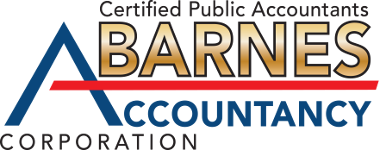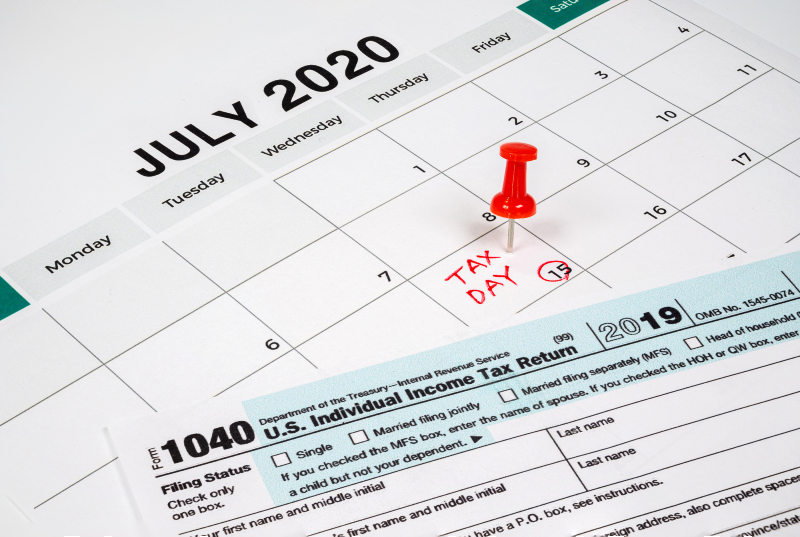Some of our Southern California clients are STILL pulling their paperwork — which is understandable during this donkey of a year, and with all of the new complications.
But sadly, ye olde IRS isn’t extending any payment grace in a couple weeks. (I say “sadly”, but here at Team Barnes we may or may not be champing at the bit to turn the page on this crazy tax season.)
So yes — taxes are due in a couple weeks!
And not just tax returns, but payments of 2019 tax due AND estimated taxes from the first quarter AND estimated taxes from the second quarter.
All of it is due together.
And the 15th of July brings other deadlines too … like contributing to an IRA to have it reflect upon your 2019 taxes.
It is also the final day to max out contributions for your 2019 HSA (Health Savings Account) and to claim any refund money from an unfiled 2016 return. (There is over a BILLION in unclaimed refund money out there for that year — but only available if you didn’t file) and most states’ tax deadlines also fall on the 15th (here’s the complete list).
If all of these deadlines are overwhelming, let’s help you formulate a plan. It doesn’t have to be a hot mess.
It never does — this is what we are here for: (714) 541-4338.
(If you HAVE already used us for your taxes would you let us know what you thought? We really appreciate it. You can also find us on Yelp and/or Google Maps. A great review on Google would be very, very helpful — but if for some reason you had problems, feel free to shoot me an email so I can address it and make it right somehow.)
https://goo.gl/maps/ir837jHzsCB2
Your situation might be unique (in which case, let’s talk!), but I also have in my possession a rundown of what to do in these next couple weeks if you anticipate not being able to pay all of the taxes that are due (remember, 2020 estimates AND 2019 taxes are due).
Here you go:
David Barnes’ To-Do List If You Can’t Pay All Your Taxes
“Deep summer is when laziness finds respectability.” – Sam Keen
As you know, Wednesday, July 15th is the filing deadline for a federal tax return for Southern California taxpayers, and all of those other things I mentioned above. If you need more time to get your paperwork complete, you need to file (or have us file on your behalf) this form: http://www.irs.gov/pub/irs-pdf/f4868.pdf with the IRS by the end of the day on the 15th. This gives you an automatic three-month (until October 15, 2020) extension of time to file.
But I hope you understand that an “extension of time to file” is not an “extension of time to pay”, unfortunately. The extension simply gives you an automatic three months of additional time to get your paperwork together and file that return. But, if you owe more than what you paid with your estimate, you’ll be accumulating penalties and interest on the difference — so PLEASE don’t take the entire three months to do this!
So, when filing your extension, you’ll need to estimate what you think you owe to the IRS. This should not be pulling numbers out of thin air. You’ll still need to go through your receipts and tax documents and get them “somewhat” organized.
From here, you can estimate both your income and your expenses, and then approximate what you owe Uncle Sam. Keep in mind that this is an ESTIMATE. Then you’ll have to pay what you estimate you owe at the time we file for the extension.
You can do this all electronically through our office, you can mail in the form WITH estimated payment (must be postmarked by the 15th), or you can call a specialized provider and pay by credit card. We can provide you with the appropriate number to call.
Here’s what to do if you can’t pay all of your taxes due:
1) Pay as much as you possibly can right now.
2) You can ask for (and often receive) an extension of up to 120 days to PAY: https://www.irs.gov/taxtopics/tc202.html. It requires a phone call to the IRS. 🙁
3) “Financial hardship” delay: This is if paying your tax bill would demonstrably affect your ability to pay your other bills. Interest and penalties still accrue, but it’s better to register this with the IRS than to simply ignore the bill.
4) Installment payment plan: If you owe less than $50K in taxes, you should usually be able to get an installment payment plan of up to 72 months, simply by asking for it. If this is something you are considering, please let’s talk it over to make sure we come up with the best plan. But you can apply online for this here: https://www.irs.gov/Individuals/Online-Payment-Agreement-Application
5) Negotiate: This is NOT something to try on your own. We can help, but the number of “Offers in Compromise” that get accepted each year are quite small and a knowledge of how the system works is important.
6) Use existing credit sources (credit card, HELOC, private loans): Some tax advisors would quickly recommend this, but I would NOT recommend you go this route. If you’ve exhausted the options above, do this instead…
7) Sell something you don’t need anymore. Always a pretty good plan anyway.
That was a lot of information. I truly hope it is helpful.
But regardless, we’re in your corner.
Warmly,
David Barnes
(714) 541-4338
“CRISIS Action Plan” for my Southern California tax clients and friends:
1) Don’t marinate in other people’s panic. Be mindful of your social media consumption.
2) Continue to stay financially and logistically prepared for worsening situations.
3) Make sure you have some ready, liquid assets, if you are able. (I.e., cash in the bank, and in hand.)
4) Set aside plans for any big spending until the dust settles — but especially look out for your small business owner friends and vendors.

